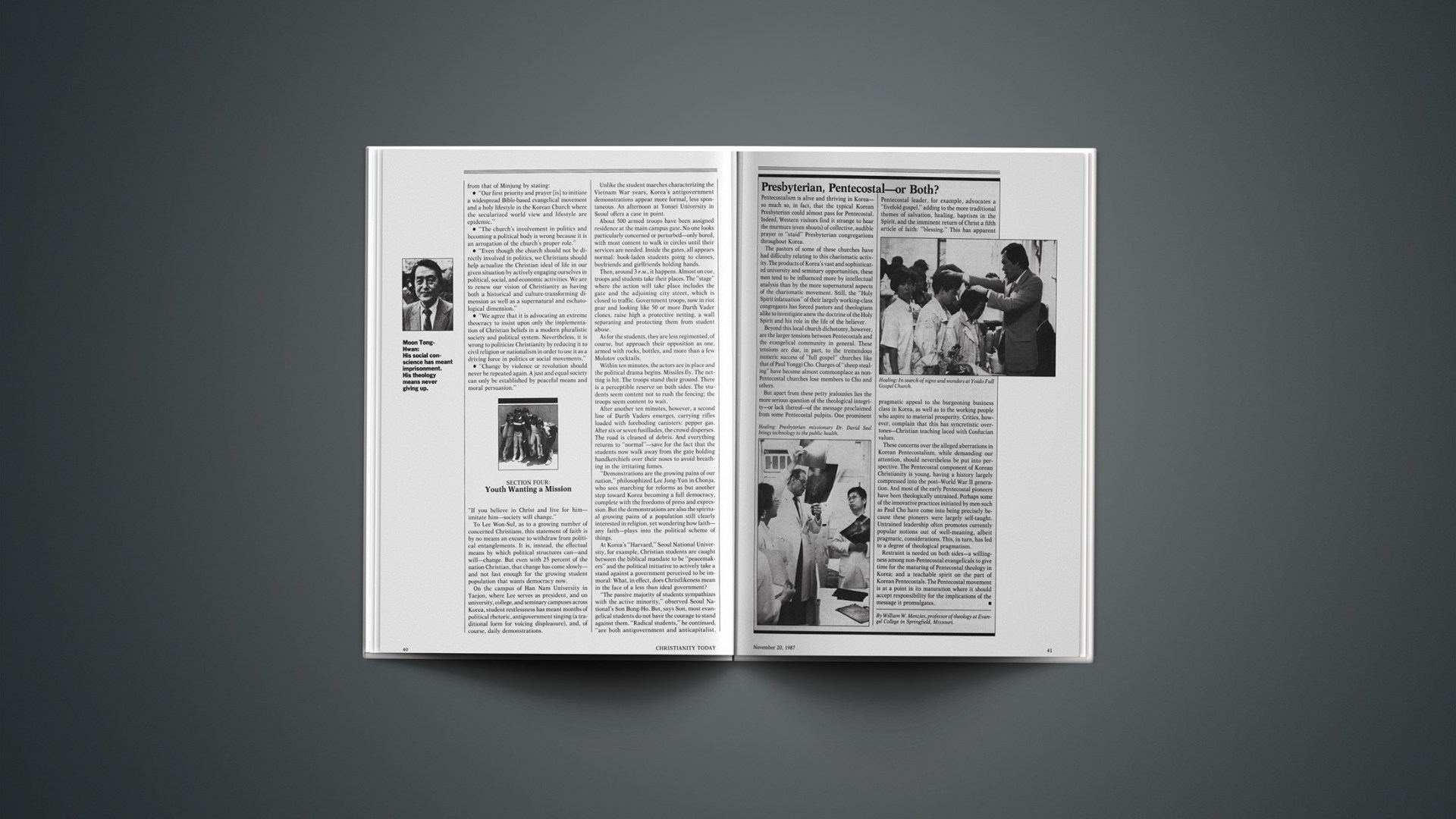Pentecostalism is alive and thriving in Korea—so much so, in fact, that the typical Korean Presbyterian could almost pass for Pentecostal. Indeed, Western visitors find it strange to hear the murmurs (even shouts) of collective, audible prayer in “staid” Presbyterian congregations throughout Korea.
The pastors of some of these churches have had difficulty relating to this charismatic activity. The products of Korea’s vast and sophisticated university and seminary opportunities, these men tend to be influenced more by intellectual analysis than by the more supernatural aspects of the charismatic movement. Still, the “Holy Spirit infatuation” of their largely working-class congregants has forced pastors and theologians alike to investigate anew the doctrine of the Holy Spirit and his role in the life of the believer.
Beyond this local church dichotomy, however, are the larger tensions between Pentecostals and the evangelical community in general. These tensions are due, in part, to the tremendous numeric success of “full gospel” churches like that of Paul Yonggi Cho. Charges of “sheep stealing” have become almost commonplace as non-Pentecostal churches lose members to Cho and others.
But apart from these petty jealousies lies the more serious question of the theological integrity—or lack thereof—of the message proclaimed from some Pentecostal pulpits. One prominent Pentecostal leader, for example, advocates a “fivefold gospel,” adding to the more traditional themes of salvation, healing, baptism in the Spirit, and the imminent return of Christ a fifth article of faith: “blessing.” This has apparent pragmatic appeal to the burgeoning business class in Korea, as well as to the working people who aspire to material prosperity. Critics, however, complain that this has syncretistic overtones—Christian teaching laced with Confucian values.
These concerns over the alleged aberrations in Korean Pentecostalism, while demanding our attention, should nevertheless be put into perspective. The Pentecostal component of Korean Christianity is young, having a history largely compressed into the post-World War II generation. And most of the early Pentecostal pioneers have been theologically untrained. Perhaps some of the innovative practices initiated by men such as Paul Cho have come into being precisely because these pioneers were largely self-taught. Untrained leadership often promotes currently popular notions out of well-meaning, albeit pragmatic, considerations. This, in turn, has led to a degree of theological pragmatism.
Restraint is needed on both sides—a willingness among non-Pentecostal evangelicals to give time for the maturing of Pentecostal theology in Korea; and a teachable spirit on the part of Korean Pentecostals. The Pentecostal movement is at a point in its maturation where it should accept responsibility for the implications of the message it promulgates.
By William W. Menzies, professor of theology at Evangel College in Springfield, Missouri.










